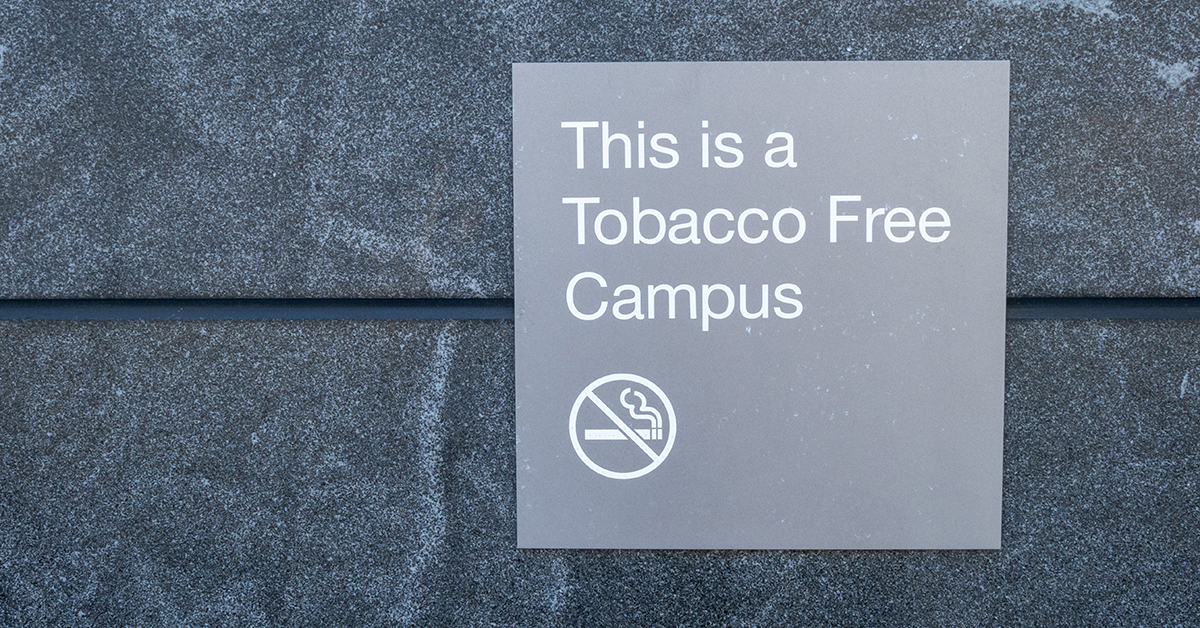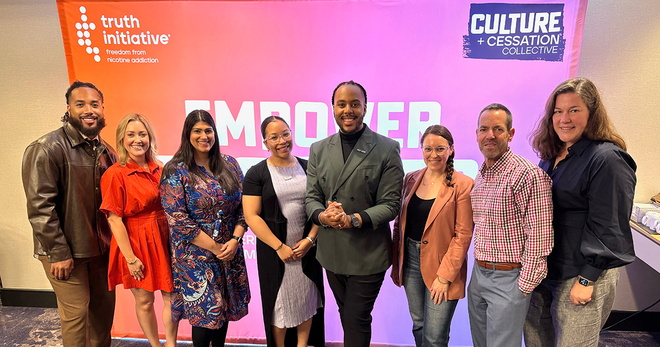10 historically and predominantly black institutions pledge to go tobacco/vape-free with Truth Initiative program
Eight historically Black colleges and universities and two predominantly Black institutions were awarded grants from Truth Initiative® to adopt a 100% tobacco/vape-free campus policy, adding more than 31,000 students to the nearly 2 million who have been impacted through the Truth Initiative Tobacco/Vape-Free College Program.
As part of a national movement among students, faculty and administrators to address smoking, vaping and nicotine use at college campuses throughout the U.S. and a continued commitment to addressing tobacco as a social justice issue, the Truth Initiative Tobacco/Vape-Free College Program provides grants of up to $20,000 to eligible institutions to engage their campus community to address smoking and vaping. Since 2015, the Truth Initiative Tobacco/Vape-Free College Program has awarded more than $2.5 million in funding to 205 community colleges, minority-serving institutions including HBCUs and PBIs, women’s colleges and college systems. This roster includes 59 HBCUs and eight predominantly black institutions.

The importance of tobacco/vape-free campuses
With 99% of smokers starting before age 26 and the youth vaping epidemic continuing, college campuses are critical to preventing young adults from starting tobacco use, aiding current smokers and vapers in quitting and reducing exposure to secondhand smoke for all.
Campuses are also important venues for addressing tobacco use as a social justice issue. The tobacco industry has a long and well-documented history of targeting the Black community, especially with menthol cigarettes, which were used by nearly 9 in 10 Black smokers according to data from 2018, and are easier to smoke and harder to quit. Tobacco companies have a history of predatory marketing tactics, including placing more advertising in predominantly Black neighborhoods, running ads in publications that are popular with Black audiences, appropriating Black culture in marketing campaigns and leveraging event sponsorship opportunities in majority Black spaces.
Big Tobacco’s tactics have serious consequences. African Americans have higher death rates from tobacco-related causes compared to other racial and ethnic groups – with more than 39,000 dying from tobacco-related cancers each year. The health consequences are especially severe now as COVID-19, which is also disproportionately affecting Black Americans, can carry greater risk of severe illness for tobacco users.
Joining the Truth Initiative Tobacco/Vape-Free College Program
Over the next 16 months, grantees will form a campus task force that will assess smoking, vaping and tobacco use behaviors and attitudes, identify a treatment plan for current smokers and vapers and develop a smoke, vape and tobacco-free policy. Two student leaders from each institution will also spearhead educational efforts to build a movement to become a smoke, vape and tobacco-free campus. After participation in the program, the institutions will join a growing movement that is protecting more than 1.9 million students and 161,000 employees in 40 states.
The latest grantees of the Tobacco/Vape-Free College Program include:
- Miles College in Fairfield, Alabama
- Los Angeles Southwest College in Los Angeles, California
- Morehouse College in Atlanta, Georgia**
- Atlanta Technical College in Atlanta, Georgia
- Coppin State University Development Foundation in Baltimore, Maryland
- Jackson State University in Jackson, Mississippi**
- Cheyney University in Cheyney, Pennsylvania**
- Clinton College in Rock Hill, South Carolina*
- LeMoyne-Owen College in Memphis, Tennessee**
- Jarvis Christian College in Hawkins, Texas**
“We are grateful for our dedicated college partners across the country who are working to make campus environments healthier places to live, work and learn,” said Robin Koval, CEO and president of Truth Initiative. “We are proud to continue to build relationships and provide grants to minority-serving institutions, offering the support and the tools to help them fight back against the decades of targeted marketing from Big Tobacco. Giving colleges the tools and resources to create tobacco/vape-free policies is will help us realize a future where young people reject smoking, vaping and nicotine use.”
* Clinton College applied for the e-cigarette only grant. Their goal is to add e-cigarettes to their current tobacco-free policy. All grant requirements remain the same.
** Former grantees
More in tobacco prevention efforts
Want support quitting? Join EX Program
By clicking JOIN, you agree to the Terms, Text Message Terms and Privacy Policy.
Msg&Data rates may apply; msgs are automated.


